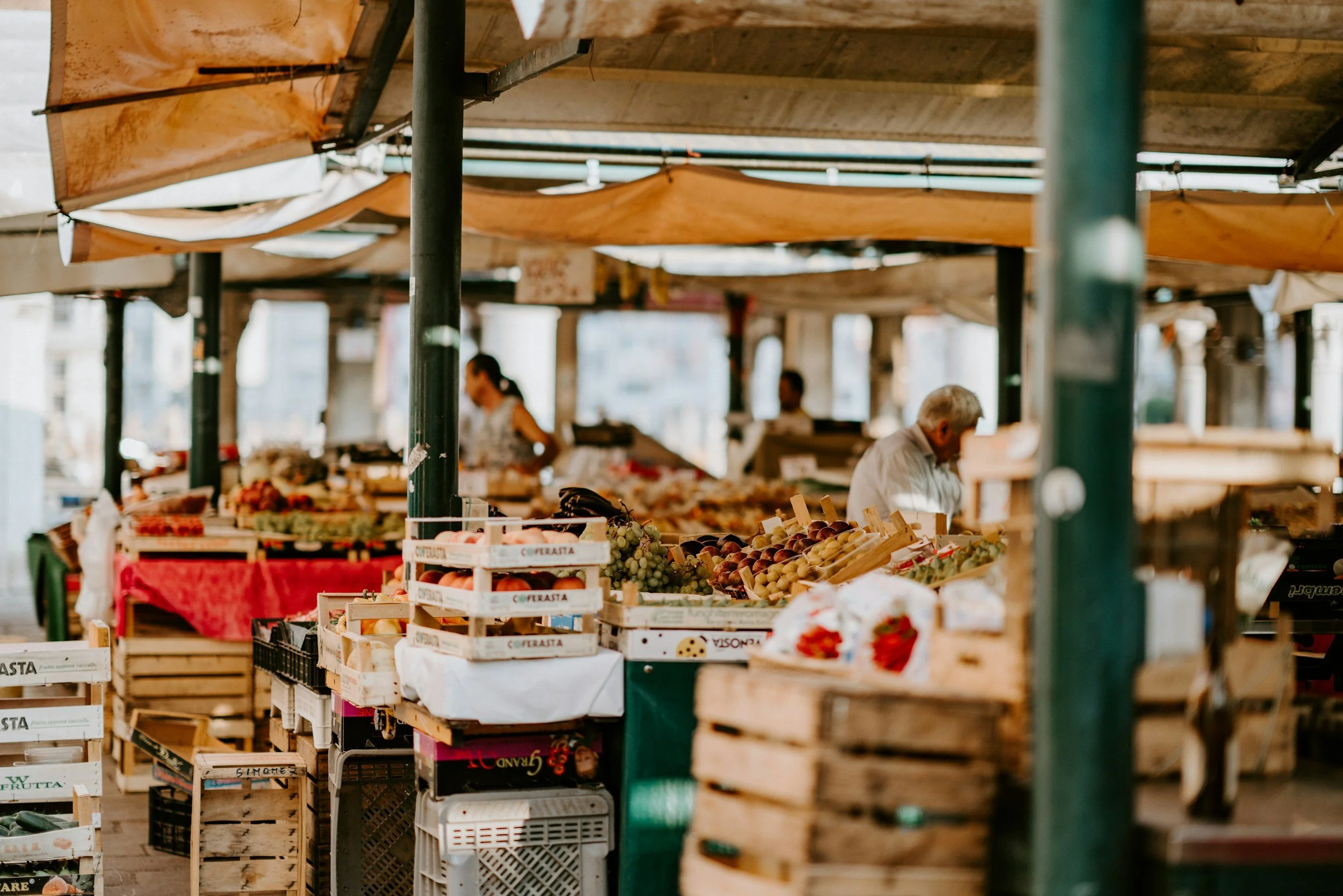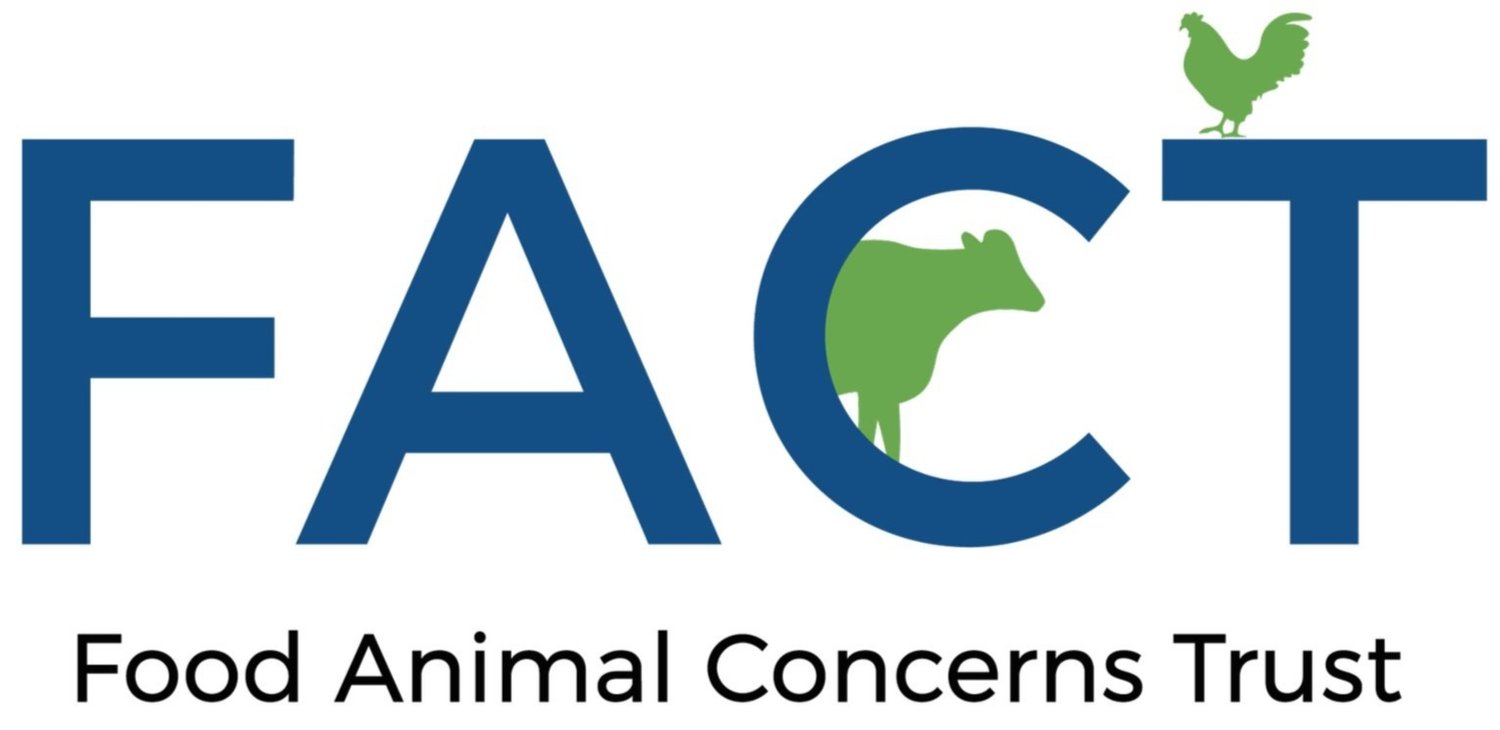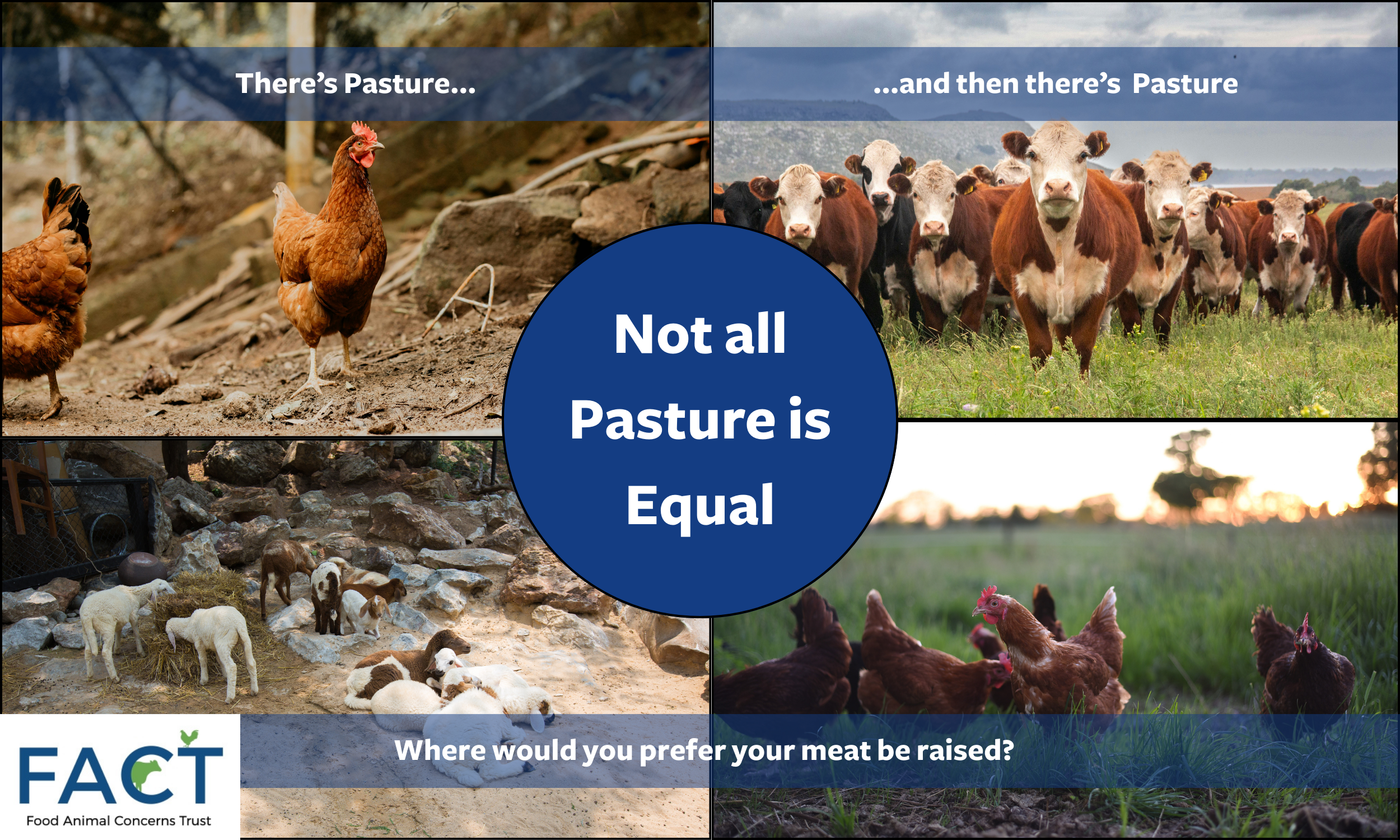
Humane Shopping
…at Farmers Markets, CSAs and on a Budget
IDENTIFYING HUMANE OPTIONS AT FARMERS MARKETS
Farmers’ markets are an excellent opportunity to connect directly with farmers and learn more about the products you purchase while supporting independent family farms. FACT recommends that you support farmers directly and engage with them to learn more about your food (if their lines aren’t too long that is). Here are a few questions to get you started. You certainly shouldn’t feel like you have to ask all or even any of these questions. A little research into their website or social media very often will give you the information you need.
Four questions to ask your meat and egg farmer!
Do you routinely give antibiotics to your animals, even when they are not sick?
-
An important part of raising healthy animals is preventing pain and suffering, sometimes this means the responsible use of antibiotics to treat disease or heal injury under the supervision of a veterinarian. You can learn more about antibiotics and Superbugs on our Safe and Healthy Foods page).
-
You are looking for a farmer who is selective about their use of antibiotics choosing to use them only for ill or injured animals not as a band-aid to coverup issues related to poor husbandry.
Do you use farrowing crates for your pigs?
-
Farrowing and gestation crates are among the most extreme forms of confinement in industrial farming.
Throughout their lives, breeding pigs (sows) are confined in cramped metal cages so small they cannot even turn around, forced to stand or lie on hard concrete or grated floors. They are bred again just weeks after giving birth, meaning many sows spend nearly every day of their lives—up to seven years—locked in these crates. This system inflicts immense physical pain, frustration, and suffering, stripping mother pigs of their ability to move freely, build nests, engage in natural social behaviors, or properly care for their young.
While industrial producers claim crates are necessary to protect piglets, this can be achieved through far more humane methods, such as using bumper bars, selecting resilient breeds, and prioritizing good mothering traits in breeding programs. FACT farmers demonstrate every day that there are kinder, proven alternatives that protect both piglets and sows—without resorting to lifelong confinement.
-
The answer is simple: look for local farmers who reject the belief that sows must be cruelly confined and instead choose humane methods—such as farrowing on pasture, deep-bedded housing systems, or farrowing huts that allow sows to come and go freely. On humane-focused farms, mother pigs can move, build nests, and raise their young in healthier, less stressful environments.
Do your animals have access to live pasture?
-
All pastures are not created equal, so what’s the difference between “live” pasture and regular pasture? “Live” pasture is a thriving collection of forbs and forage designed to entertain as well as nourish animals. Pigs are going to be the hardest to raise on live pasture because a day or two with them on it and they’ve uprooted everything. Regular movement or a hub and wheel approach makes even pigs and live forages possible.
-
You are looking for a farmer who moves their animals onto fresh vegetation on a regular basis, it’s better for the animals and the environment.
Do you feed a medicated starter feed?
-
Feeding a medicated feed is often an indicator of poor management but it can also be how the farmer was taught and what they have always done. This is an opportunity to learn more about the management practices of your farmer.
-
Hopefully your farmer is a good steward, knows his/her animal husbandry and understands that a lot of the illnesses young animals are susceptible to come from poor living conditions.
Asking questions about the food issues that matter to you enables you to get the products you want, while also making connections with farmers in your community. To learn what practices are humane and which answers to look for, read our humane principles.
Feeling shy or want a shortcut? Look for farmers whose products have a humane certification label. Keep in mind that certification can be too time consuming or expensive for a small family farm to pursue, so a farm may have humane practices but not be certified. You can learn about our work with the ASPCA to help family farmers achieve certification.
To find a farmers’ market in your area, use the USDA’s locator search, Crate Free USA’s app (for factory free, meat, dairy, and eggs in Illinois), or Local Harvest’s Farmers Market search. Due to the growing popularity of farmers markets, there may be a winter market available at an indoor location year-round.
If a market isn't available in your area, you may still be able to find a farm near you or get involved in starting a market.
SUPPORTING A LOCAL CSA PROGRAM
Community Supported Agriculture (CSA) programs are an excellent option for purchasing local food. Generally, a consumer pays at the beginning of the season for a set amount of food and then receives it from the farmer once it is ready to be eaten.
A CSA may deliver food directly to you at a premium, or may ask that you pick up your food on a set schedule from a farm stand, farmers market, or community center.
Finding a local CSA is easy and straightforward. You can also learn more about what to look for when subscribing to a CSA. Meat CSAs, which are becoming more popular, give you the opportunity to ask the farmer directly how your meat was raised.
Feel free to ask questions of any CSA that you are considering so that you make an informed decision that works best for your family. Please note that CSAs are not usually equipped to provide you and your family with all the food items you need, as many products are seasonal.
While shopping at farmers markets and eating humane may cost more up front, industrial animal farming isn’t cheap. Damage to the environment and water sources, health problems caused by air pollution and poor food safety practices, and the impact of growing antibiotic resistance all cost tax payers.
FACT works to make humane food more available through our grants, scholarships, and educational opportunities for farmers, and by working with federal regulators and corporations. You can help us with our work by signing up to take action or by making a gift.
TIPS FOR SHOPPING ON A BUDGET
It costs more for a farmer to raise animals humanely on pasture. From buying better quality feed to laying water lines and fences across fields, raising animals humanely takes more labor, time, and money. However, eating humanely doesn’t have to break the bank.
*A thoughtful meal doesn’t have to be all or nothing. Starting with one item is a great way to support a better food system and has a real impact. Humanely raised eggs, milk, or cheese may be only a few dollars more than their industrial counterparts, and can be a great place to start.
*If you’re looking for meat, a more unusual or less expensive cut may surprise you—pasture-raised meat is often more lean and nutritious than its conventional counterpart, and many chefs appreciate it for its high quality. Ask your farmer for a recommendation!
*If you have the refrigerator space and aren’t afraid to do some serious cooking, buying larger cuts of meat can be less expensive than buying each component individually. Homemade sausages, fresh broth, and a new skill set can all be incredibly rewarding.





